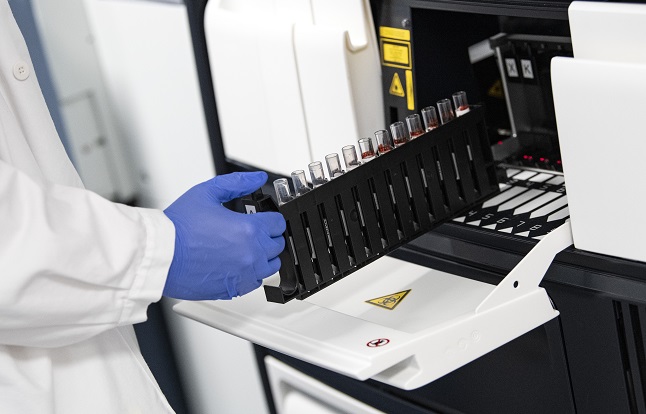The Public Health Agency has previously said that people who have tested positive for Covid-19 antibodies are very unlikely to be re-infected for at least six months after catching the virus. Based on this, they have said people with a reliable positive antibody test can socialise with those in risk groups.
But not everyone who catches the virus develops these antibodies – proteins created by the body to fight off the virus.
Now the agency says that even people without the antibody are likely to have some form of immunity after catching the coronavirus, although authorities stressed that people should continue following general recommendations for reducing the spread of infection, including staying home when showing any symptoms and keeping social distance.
“People who have had a confirmed Covid-19 infection and recovered are judged to have a very low risk of becoming ill again for at least six months,” the agency said in new guidelines which were put together by a working group including university researchers, regional infectious disease doctors, and Public Health Agency staff.
“Although not everyone develops measurable levels of antibodies in the blood after infection, these individuals have probably developed some form of immune response,” the guidelines state, saying that some bodies may not be detected by commercial tests, and that immune responses can also take place at a cellular level.
This is based on the fact that very few cases of re-infection have been recorded, although there is no scientific consensus over what level of immunity is provided by exposure to the virus, and how long any immunity may last.
The Swedish guidelines are aimed at regions and municipalities, not individuals, which means people shouldn't change their behaviour based on a belief they may be immune.

The guidelines may help care homes assess when to make exceptions to a ban on visits. Photo: Pontus Lundahl/TT
The main thing is that otherwise healthy individuals who have recovered from a confirmed case of Covid-19 may be able to have closer contact with people from risk groups. The agency stresses that people must still be completely symptom-free to be judged at low risk of catching or spreading the virus, even if they've previously had it.
This could be important for staff such as carers and doctors who need to work closely with these groups, but also for care homes when assessing if it's possible to make exceptions to the nationwide ban on visits.
The National Board of Health and Welfare has previously told elderly care homes they can use antibody tests as a criteria for allowing indoor visits in facilities – although this should only be done if the test is one with a high accuracy level. Many regions have chosen not to alter their visitor policies however.
The Public Health Agency said: “Note that every person must always make their own risk assessment before socialising with others and that the general guidelines to protect against infection which apply in society and at workplaces must be followed. In the healthcare sector, hygiene routines and routines around personal protective equipment must also still be followed.”
The agency plans to update its guidelines as further research emerges.
The World Health Organisation said in April that antibodies would likely “provide some level of protection” against re-infection. But there is still no conclusive evidence to show whether people are fully immune, or for how long, and the WHO hasn't made an official comment on whether people without antibodies can be considered likely to have any immunity.


 Please whitelist us to continue reading.
Please whitelist us to continue reading.
No one knows how long the immunity lasts, so how can they be so sure about this “6-month or so” timeframe? Because it’s a coronavirus?
And when is FHM going to start reading international studies/reports about asymptomatic spreading and stop with this “symptom-free” and “masks give a false sense of security” yatata?
I would really like to have some faith in Anders Tegnell and colleagues, but I just can’t.